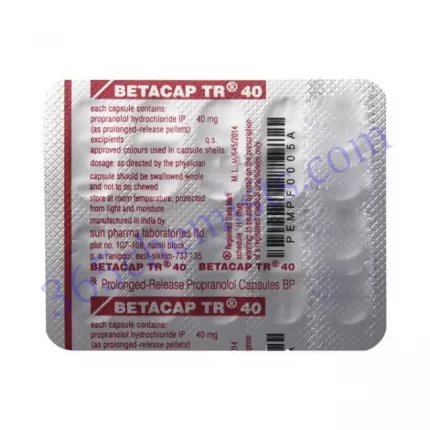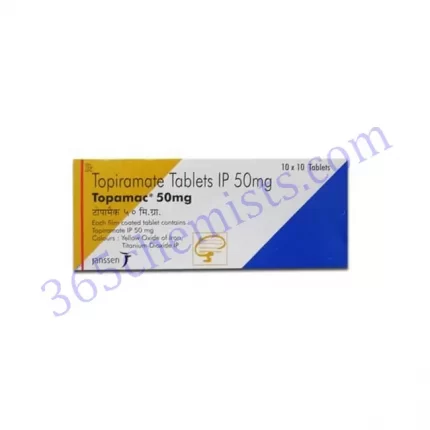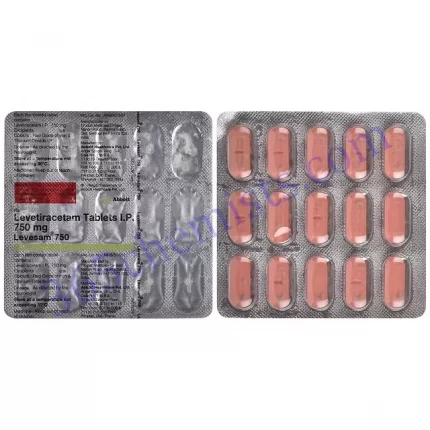INTRODUCTION
Betacap TR 60 contains Propranolol which belongs to a group of medicines called beta-blockers, which have effects on the heart and circulation of the body. It is used to treat hypertension, angina, arrythmias (disorders of heart rhythm), migraine and proliferating infantile hemangioma.
Propranolol is a nonselective beta-adrenergic receptor blocking agent which specifically competes with beta-adrenergic receptor agonist agents for available receptor sites. By blocking the response to beta 1 and beta 2 adrenergic stimulation, it helps in decreasing the heart rate, myocardial contractility, blood pressure, and myocardial oxygen demand. It reduces portal pressure by producing splanchnic vasoconstriction thereby reducing portal blood flow.
Before taking BETACAP TR 60MG, tell your doctor if you have asthma, heart, kidney or liver problems. It is not recommended for use during pregnant and breastfeeding. The common side effects are tiredness, weakness cold fingers and toes, irregular or slow heartbeat, numbness in your fingers and breathlessness.
USES OF BETACAP TR 60MG
- Treat hypertension (high blood pressure), angina (chest pain), arrythmias (disorders of heart rhythm), phaeochromocytoma, migraine and proliferating infantile hemangioma
HOW BETACAP TR 60MG WORKS
Betacap TR 60 works by blocking the action of certain natural chemicals in your body that affect the heart and blood vessels. This effect reduces heart rate, blood pressure and strain on the heart.
DIRECTIONS FOR USE
Always take BETACAP TR 60MG as your doctor has directed you. Swallow this medicine with a drink of water before meal and do not chew.
Related Product
Betacap 10mg Tablet
Betacap 20mg Tablet
Betacap TR 20 Capsule
Betacap TR 40mg Capsule
Betacap TR 60mg Capsule
Betacap TR 80mg Capsule
SIDE EFFECTS OF BETACAP TR 60MG
COMMON
- Cold fingers and toes
- Slow heartbeat
- Numbness and spasm in the fingers
- Disturbed sleep or nightmares
- Fatigue
- Breathlessness
RARE
- Worsening of breathing difficulty
- Worsening of heart problems
- Swelling of the skin which may occur in the face, tongue, larynx, abdomen, or arms and legs
- Dizziness
- Worsening of blood circulation
- Hair loss (alopecia)
- Mood changes, confusion or memory loss
- Psychosis or hallucinations
- Paraesthesia
- Disturbances of vision, dry eyes
- Skin rash, including worsening of psoriasis
- Reduction in the number of platelets
- Purple spots on the skin
HOW TO MANAGE SIDE EFFECTS
Cold hands and toes:
Wear gloves and socks to keep warm. Exercise daily to improve blood circulation and briskly massage hands or feet.
Disturbed sleep:
Maintain a regular bedtime, exercise regularly and avoid naps and go to bed only when sleepy.
Dizziness:
Get up and move around to feel awake, take small naps to edge off the sleepiness. Give your eyes a break to avoid fatigue and eat a healthy food to boost energy.
WARNING & PRECAUTIONS
PREGNANCY
BETACAP TR 60MG is not recommended during pregnancy, unless your doctor considers it necessary. Discuss the risks and benefits with your doctor.
BREASTFEEDING
BETACAP TR 60MG is not recommended for use in breastfeeding women unless necessary. Discuss the risks and benefits with your doctor.
DRIVING AND USING MACHINES
BETACAP TR 60MG may cause dizziness or tiredness. Do not drive or handle any machines while taking this medicine.
ALCOHOL
Consumption of alcohol is not recommended during treatment with BETACAP TR 60MG.
KIDNEY
BETACAP TR 60MG should be used with caution in patients suffering from active kidney diseases. Consult your doctor for advice.
LIVER
BETACAP TR 60MG should be used with caution in patients suffering from liver function impairment or active liver diseases. Consult your doctor for advice.
ALLERGY
Do not take if you are allergic (hypersensitive) to Propranolol.
HEART DISEASE
BETACAP TR 60MG is not recommended in patients with severe heart disease. Consult your doctor for advice.
OTHERS
Inform your doctor if you have or had a condition such as,
- Increased acidity of the blood (metabolic acidosis)
- Are on a strict fasting diet
- Asthma, wheezing, chronic obstructive pulmonary disease and bronchospasm
- Untreated phaeochromocytoma
- Severe blood circulation problems
- Prinzmetal’s angina
- Decrease in blood pressure
- Diabetes
- Allergic reactions
- Thyrotoxicosis
- Muscle weakness
INTERACTIONS
Inform your doctor if you are taking or have recently taken any other medicines, including medicines obtained without a prescription or the following:
- Verapamil, diltiazem
- Nifedipine, nisoldipine, nicardipine, isradipine, lacidipine and hydralazine (used to treat hypertension or angina)
- Lidocaine (local anesthetic)
- Disopyramide, quinidine, amiodarone, propafenone, adrenaline and glycosides (treats heart problems)
- Ibuprofen and indometacin (treats pain and inflammation)
- Ergotamine, dihydroergotamine or rizatriptan (used for migraine)
- Chlorpromazine, mao inhibitors and thioridazine (used for certain psychiatric disorders)
- Cimetidine (treats stomach problems)
- Rifampicin (used to treat tuberculosis)
- Theophylline (used for asthma)
- Warfarin (used to thin blood)
- Fingolimod (treats multiple sclerosis)
- Fluvoxamine and barbiturates (used to treat anxiety and insomnia)
- Clonidine (used for hypertension or migraine)












